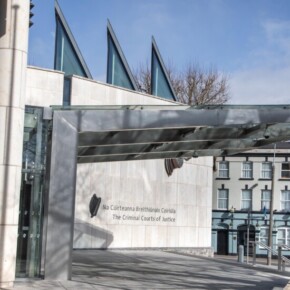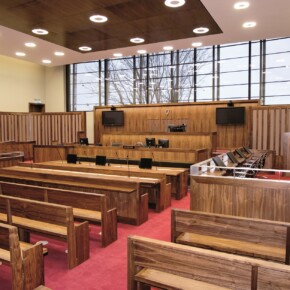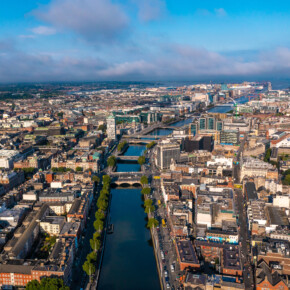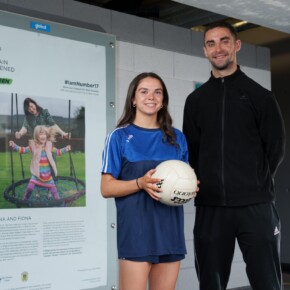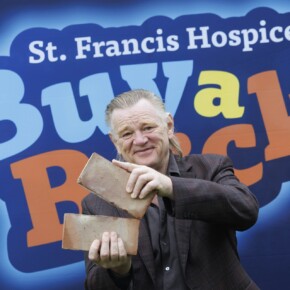Cabra-Glasnevin shifts into election mode
Mike Finnerty 13 Dec 2023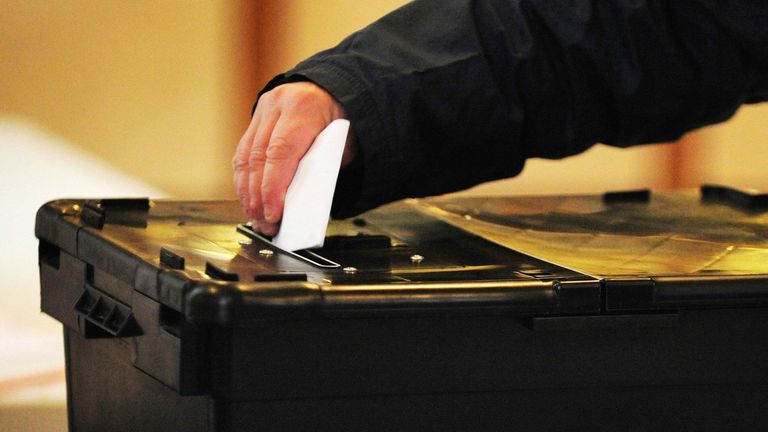
WHEN a constituency contains Dublin Zoo, Dalymount Park, the Mater Hospital, the National Botanic Gardens and Phoenix Park, you would hope the candidates have invested in a good pair of walking shoes.
Cabra-Glasnevin, which takes in Ashtown, Cabra and Phibsborough, will see candidates old and new fight for the seven seats.
Seven-seaters are famously difficult to predict, but in the spirit of Woodward and Bernstein, we will give it a shot.
To understand the consistency, a recap will come in handy.
Fianna Fáil’s Mary Fitzpatrick stormed to first place in the constituency in 2019 with just 19.8% of first preferences, with Neasa Hourigan not far behind her with 13.3% for the Greens.
Both were comfortably elected on the first count.
7-seaters make it easier for smaller parties to get candidates elected and we may well see that put into action here.
Fitzpatrick was elected as a Senator in early 2020 after many years of representing Cabra-Glasnevin at a local level, with Eimer McCormack co-opted into the seat.
Considering Fitzpatrick commanded a strong vote in the area over the years, Fianna Fáil will be confident in getting McCormack elected for a full term onto Dublin City Council and she will be joined by John Stephens.
Stephens previously ran for the party in 1999 and 2004 in Cabra-Glasnevin but missed out on both occasions; he is surely hoping 3rd time is the charm.
Fine Gael has plumped for the incumbent Colm O’Rourke and local area representative Gayle Ralph.
Cabra-Glasnevin is no longer the home of the constituency of the sitting Taoiseach, but that is unlikely to deter the candidates.
O’Rourke was elected handily in 2019, and there is an apparent confidence in O’Rourke’s abilities to secure re-election as Ralph has been drafted in alongside him.
The Green Party, which saw such a strong vote in 2019 in a prelude to their 2020 triumph, have pinned their hopes on Feljin Jose, chairperson of the Dublin Commuters Coalition.
Much has been made of the Greens’ woes nationally, but Jose has a high profile as far as local election candidates are concerned.
Jose is a noteworthy candidate for the Greens, regularly putting a spotlight on the failures and misgivings of public transport in Dublin in his role with Dublin Commuters Coalition.
Jose is known for his painstaking amount of detail when it comes to his plans to improve public transport; considering the constituency is very commuter-heavy thanks to the M3 parkway rail service, the Luas green line and an unreliable at best bus services, a commuter-focused campaign could prove to be a big hit with voters.
Jose has the support of outgoing Councillor Darcy Lonergan, while Minister and Dublin West TD Roderic O’Gorman has shown his backing for Jose in recent times along with Neasa Hourigan.
Hourigan was elected on the first count in 2019 with 13.3% of first preferences; even if the Greens lost half of that 13%, that would still be enough to get them elected owing to the 7-seater nature of the constituency and the power of PRSTV.
32 seats are needed to secure a majority on Dublin City Council; Sinn Féin running four candidates in Cabra-Glasnevin is a sure sign of the party wanting to make that majority a reality.
Seamus McGrattan will headline the ticket for Sinn Féin, with the party opting to delve into their existing infrastructure in West Dublin in the form of Councillor Natalie Tracey.
The Castleknock Councillor is making the move to the constituency, with Tracey hoping to switch from a seat on Fingal County Council to a seat on Dublin City Council.
Two new candidates, Amy Farrell and Calum Atkinson round out Sinn Féin’s quartet.
If the party is going to win big anywhere, it would surely be the stomping ground of party leader Mary Lou McDonald, whose own Dáil constituency covers part of Cabra-Glasnevin.
McGrattan secured just under 7% of first preferences last time out, but based on constituencies where they ran more than one candidate in the 2020 general election and their more recent election results in Northern Ireland, Sinn Féin appears to have an uncanny ability to manage votes among candidates.
Running four candidates is a very high-risk, high-reward strategy but there is no better time than a local election to test it out.
In truth, getting just two candidates elected here would be bad news for Sinn Féin; if they really want to show they have expanded the voter coalition that rewarded them in 2020, they need to be getting three elected here to show they mean business.
To add to the fun and games, both the Workers’ Party and People Before Profit will be running a candidate in Cabra-Glasnevin.
Léna Seale will be running for People Before Profit and Garret Greene will be running for the Workers’ Party.
7-seaters are more friendly to parties like PBP and the Workers’ Party; only time will tell if the electorate are ready to embrace them.
Sinn Féin have come in for criticism on their left flank in recent weeks, and there would be no surer sign that the party faithful are unhappy with the party’s slide to the centre then by electing candidates to the left of Sinn Féin in Mary Lou McDonald’s backyard.
Between them, the Solidarity branch of People Before Profit and the Workers’ Party only got a combined 3.5% of first preferences in 2019, but a lot has changed since then in the left-wing sphere.
The Social Democrats are heading into with a point to prove, and are relying on incumbent Councillor Cat O’Driscoll to retain her seat here.
O’Driscoll was co-opted onto Dublin City Council following Gary Gannon’s election to the Dáil in early 2020, with O’Driscoll establishing herself as a dynamic and lively public representative in the process.
Considering the Social Democrats have positioned themselves as a serious threat to Labour and indeed Sinn Féin, it is odd the party are only running the one candidate here.
On that note, Labour can take solace in the fact that the area is a relative stronghold for them.
The party has always typically done well in the Cabra area, even having two candidates elected back in 2014, so there is plenty of reason for the party to believe they can put up good numbers here.
In Cabra-Glasnevin, the party will attempt to get Declan Meenagh re-elected and Drumcondra Triangle Residents Association representative Angela Shafer elected alongside him.
Meenagh has been an advocate of disability rights in his time as an elected representative and was co-opted onto the Council following Marie Sherlock’s election to the Seanad in 2020 and Shafer has worked with Sherlock on a number of projects in the area.
Sherlock has worked closely with both Meenagh and Shafer, most recently launching a campaign to save the post office in Phisborough, so showing a serious commitment to hyper-local issues could richly reward the party of bread and roses in June.
Aontú have made a lot of noise that they were the only mainstream party that championed a No-No vote in March’s referendums, and will head into June fairly confident they are the true champions of social conservative values in Ireland.
A 7-seater is Aontú’s best chance of electoral success, and the party has chosen Ian Noel Smyth as their candidate.
A 7-seater really helps smaller parties such as Aontú; it is entirely possible to get elected in a 7-seater even if you have less than 5% of first preferences.
June will be a big test to see where exactly Aontú get their transfers from.
The party has positioned itself as being more serious about Irish republicanism than Sinn Féin, runs a traditional centre-left policy on economics, and a staunchly conservative line on social issues.
With four Sinn Féin candidates in the race, it remains to be seen if Aontú will benefit from transfers.
Of course, it is impossible to write about Irish politics without mentioning the role of independent politicians, and in Cabra-Glasnevin, Cieran Perry will be looking to secure a 4th consecutive term on Dublin City Council.
Independent candidates secured a combined total of 16.1% of first preference votes last time out with Perry himself scoring 9.1% of that.
Independent candidates in the area include Sarah Louise Mulligan, Stephen O’Loughlin, and Martina Whyte.
Turnout was the 2nd highest among Dublin City Council constituencies in 2019, with turnout just shy of 45% last time.
With areas like Ashtown and Phibsborough seeing major growth since then, coupled with a strikingly different political environment compared to 2019 we may well be facing a titanic showdown in the constituency in June with a hungry electorate.


